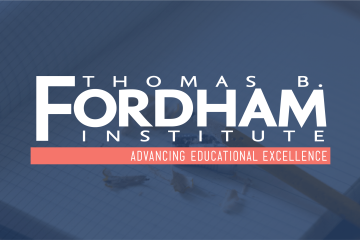Stories featured in Ohio Charter News Weekly may require a paid subscription to read in full.
Media coverage of Ohio report
The Dayton Daily News covered Fordham’s new research report, looking at the academic outcomes of brick-and-mortar charter school students in the two school years after pandemic disruption. Some excellent commentary from folks who might generally be expected to be unsupportive of charter schools, acknowledging the importance of the research and its findings, as well as asking questions about additional avenues of analysis. Nice! If you haven’t read the report yet, it can be found here.
Transportation changes coming to Youngstown
Youngstown City Schools officials announced this week that the district would no longer provide bus transportation for high school students (except for those with special needs), starting this fall. This will impact district, charter, private, and STEM school students. Youngstown is facing an impending budget deficit and says it is having trouble hiring enough drivers to cover required routes too. But additionally, they are facing a state fine of around $2 million dollars for already having failed to adequately transport those charter school students in the past. By cutting the routes, they will presumably cut their future fines, and it seems that some students won’t notice a difference if the bus isn’t available next year anyway.
NLRB ruling
A judge for the National Labor Relations Board (NLRB) last week ruled that KIPP Columbus officials engaged in unfair labor practices while the school’s teachers were unionizing during the 2022-23 school year. School leaders were ordered to post notices about the violations for all employees to see, and to pay a withheld stipend to intervention specialists, with interest.
Shameless in Springfield
We discussed a couple of weeks ago the saga of Springfield Sports Academy, which had sued Northeastern Local Schools to stop the imminent demolition of an unused school building they wanted to buy. This week, the previously-issued temporary restraining order was lifted after district lawyers managed to convince a judge that the building was simultaneously not an unused facility (thus not up for sale) but was also in need of immediate demolition (since they didn’t need it now). All this despite the district having tried to sell the intact building to someone else (by which I mean any buyer that is not a charter school) in December. It is a shameless and transparent effort to deny a “competitor” in flagrant violation of the spirit—if not the word—of state law on the subject. It’s very likely that the building will be rubble long before the legalities shake out, no matter how they’re decided.
Another legal decision
In a 6-2 ruling, the Oklahoma Supreme Court determined that the Statewide Virtual Charter School Board’s vote last year to approve a virtual school sponsored by the Catholic Archdiocese of Oklahoma City was unconstitutional (both state and U.S.). The ruling likely puts a kibosh on the startup of St. Isidore of Seville Virtual Charter School for this year…and perhaps permanently.
Not re-segregation
Debbie Veney, Senior Vice President at the National Alliance for Public Charter Schools, took issue with the notion that having charter schools whose enrollment is majority Black is an indication of re-segregation in schools, but is instead a fulfillment of the goals of the Civil Rights movement generally and the Brown v Board of Education decision specifically--to improve educational access and outcomes for Black children. In 1954, she writes, “Getting those kids into White schools was the best way” to achieve that outcome. “Why? Because White students had access to schools with heat. They had new textbooks and fancy science labs.” But, she says, “we are no longer in 1954.” Having charter schools focused on Black excellence and chosen freely by parents from among many options is the way to continue to make progress in boosting the academic achievement for Black children today.




